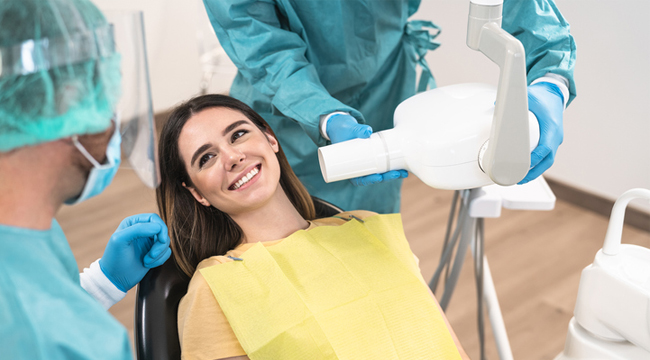
Oral Surgery in Albany, OR
Oral surgery can address several different dental issues that have persisted over time. This solution may be able to address any jaw, bone, or teeth irregularities. If you have chronic dental problems that have not responded to non-invasive treatment, oral surgery may be right for you.
Oral surgery is available at West Albany Dental in Albany and the surrounding area. For many patients, oral surgery is the solution they need after other dental treatments have failed. Call us today at (541) 928-6650 to learn more and schedule an appointment.
Understanding Oral Surgery
Reasons for Oral Surgery
- Tooth Loss. Losing natural teeth can erode the jawbone over time, making deterioration an inevitability. Dental implants can prevent this from happening by anchoring the false teeth to the jawbone and stabilizing them.
- Impacted Teeth. Teeth are "impacted" when they become trapped between the jawbone and the gum tissue. Usually, this happens because the tooth has not emerged in proper alignment or entirely through the gumline. Generally, dentists will recommend patients have these removed.
- Orthodontics. Oral surgery is sometimes necessary when braces are not enough to correct malocclusion (a misaligned bite). In such cases, a dental professional works with a surgeon to build a personalized treatment plan for the patient's orthognathic surgery (corrective jaw surgery).
Preparing for Oral Surgery
Oral surgery can be a complicated process. Taking a few easy steps can help simplify the process. Patients should maintain open and honest channels of communication with their dental professional at all times. There is no shame in asking questions. Being informed about what is going to happen and why can do a great deal to assuage any fears.
Those who will undergo sedation should not eat or drink anything, including water, after midnight the evening before surgery. Fasting prevents the chances of aspiration, a rare complication of anesthesia in which the lungs fill with the contents of the stomach. However, a small sip of water to take medication during the fast is permissible.
What to Expect from Oral Surgery
Many patients find it benefits them to arrive at least 20 minutes early on the day of the surgery, allowing them to complete any paperwork and relax. Additionally, patients with removable dental devices should come with a container to store them in during surgery.
Patients who will be undergoing sedation should arrive wearing loose, short-sleeved clothing to assist staff in taking vital signs and administering the IV. It may also be necessary for nurses to put blood pressure cuffs on the patient to monitor them during the procedure.
Recovering from Oral Surgery
Patients should plan to spend the day resting after oral surgery. The drowsiness of the sedative will likely last all day, making it important for patients to avoid doing anything that requires concentration. Patients should also refrain from straining to avoid dislodging any blood clots and causing bleeding. They should also keep their heads elevated whenever they are lying down.
Above all, it is crucial to follow the dentist's instructions for your individualized treatment plan. If you contract a fever, develop pus, or notice your swelling and bruising getting worse after three days, call our office right away.



